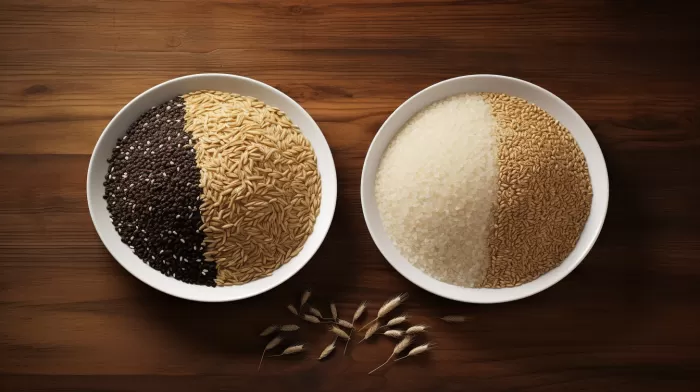Understanding how food affects your body is no easy task, especially when it comes to carbohydrates. One day we are told to eat grains, and the next day we learn of studies showing that carbohydrates make you fat and cause Type 2 diabetes and heart disease. Diets like Atkins, Paleo, and Gluten-Free come and go, yet people who follow them also die of diabetes and cardiovascular disease. So how do we separate fact from fiction?
Study 1 – Carbohydrates are bad and are killing you
Research published in 2010 in the American Journal of Clinical Nutrition found that dietary glycemic index (GI) and dietary fiber are implicated in the development of Type 2 diabetes, cardiovascular disease (CVD), and certain cancers. The study looked at carbohydrate nutrition and inflammatory disease mortality in older adults. It found that women who consumed the most high glycemic foods, including fiber, sugar, and starches, increased their risk of death by 29 times over those who consumed the least amount.
Study 2 – Whole grains reduce disease, increase lifespan
Another study published in the Jan. 5, 2015 online journal, JAMA Internal Medicine, revealed that “higher whole grain consumption is associated with lower total and CVD [cardiovascular disease] mortality in US men and women, independent of other dietary and lifestyle factors.” The researchers found that every serving (28g/d) of whole grain consumption was associated with a 5% lower total mortality or a 9% lower CVD mortality.
Why the results are different
While both studies may sound similar, they are actually quite different. The first study talks about glycemic index and carbohydrates (which includes, but is not limited to, grains). And the grain forms that have the highest glycemic index are those that are refined, stripped of their outer bran coating, and made into a powder (flour). This type of grain-based carbohydrate is found in all breads that say “enriched” on their packages, as well as crackers, cakes, cookies, and the like. Because of its processing, it is devoid of its most important nutritional value and breaks down in the body rather quickly. It is certain that carbohydrates that enter the bloodstream quickly do cause blood sugar spikes and inflammation because when glucose stays in the bloodstream it attaches to proteins causing a pro-inflammatory reaction called glycation.
The second study only talks about whole grain fiber. That is to say, breads, pasta, and other products made using the whole grain that includes its bran coating. The fibrous bran coating helps move stools through the bowels, pulls cholesterol from the blood, and stabilizes blood sugar because it takes longer to break down into sugars in the body. Whole grains naturally contain magnesium, fiber, and other phytochemicals that help fight and prevent disease.
Conclusion
The results of both studies show proof of their respective concepts.
1. If you eat high-glycemic index carbohydrates, you will increase your risk of Type 2 diabetes, cardiovascular disease, and some cancers.
2. If you eat more whole grains, you will reduce your risk of Type 2 diabetes and cardiovascular disease while prolonging life by up to 9%.
The fiber discussed in each study is not the same. The first is refined, and the second is whole, and this is what makes all the difference in obesity and diseases like Type 2 diabetes and heart disease. So when you read tidbits about studies proving this diet over that diet, make sure to track down at least the abstract and see what it really means.
By all means, heed the findings of both studies presented here, and 1) severely decrease your intake of simple carbohydrates and 2) consume more whole grains. Oh, and please stay off low-carb diets. Your brain needs the glucose from carbohydrates—just be sure they’re from whole grains.



